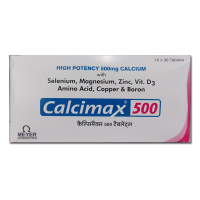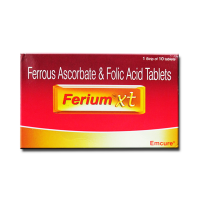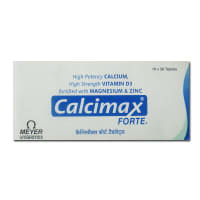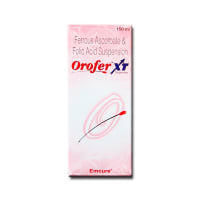NOTICE: unsafe with : Pregnancy
USED FOR:
Female infertility
Male hypogonadism
COMPOSITION:
Follicle Stimulating Hormone(FSH) (900IU)
Therapeutic Uses:
gynaecological

Interaction with alcohol is unknown. Please consult your doctor.

CAUTION
Grafyrec 900IU Injection is highly unsafe to use during pregnancy.Human and animal studies have shown significant adverse effects on the foetus. Please consult your doctor.

No information is available on the use of Grafyrec 900IU Injection during lactation. Please consult your doctor.

SAFE
Grafyrec 900IU Injection does not usually affect your ability to drive.

There is limited information available on the use of Grafyrec 900IU Injection in patients with kidney disease. Please consult your doctor.

There is limited information available on the use of Grafyrec 900IU Injection in patients with liver disease. Please consult your doctor.
Uses of Grafyrec Injection
Grafyrec 900IU Injection is used in the treatment of female infertility and male hypogonadism.
How to use Grafyrec Injection
Your doctor or nurse will give you this medicine. Kindly do not self administer.
How Grafyrec Injection works
In females, Grafyrec 900IU Injection helps in the release of an egg from the ovary (ovulation) who are not ovulating and also helps in developing more follicles (eggs) in women undergoing assisted reproductive technology procedures. In males, it helps in producing sperms which are due to a low level of hormones.
Common Rash, Headache, Injection site allergic reaction, Abdominal pain, Acne, Swelling of breast in male, Gastrointestinal discomfort, Ovarian cysts.
Expert advice for Grafyrec Injection
Do not use follicle stimulating hormone, if are a female and having polycystic ovary disease (development of cysts in the ovaries due to increased production of male hormones by the ovaries and adrenal gland); or unexplained vaginal bleeding.Avoid using follicle stimulating hormone, if you have asthma; porphyria (a rare blood pigment disorder that affects skin and other organs); cancers of breast, ovary, uterus, testicle, hypothalamus, or pituitary gland.Use of follicle stimulating hormone has been associated with multiple births (twins/triplets). Contact your doctor if you are at a risk of developing medical complications due to multiple deliveries. You will be prescribed appropriate doses at appropriate times by your doctor.Contact your doctor immediately if you experience lower abdominal pain along with urge to vomit (nausea) or more severe complications such as decreased urine production, weight gain, difficulty in breathing or possible fluid accumulation in your stomach or chest. These may indicate that you are developing serious problems of ovaries related to use of fertility medicines (ovarian hyperstimulation syndrome/OHSS).Do not use follicle stimulating hormone if you are a man having high blood levels of follicle stimulating hormone that indicates damaged testicles (testes cannot produce sperms). The drug is not effective in such cases.Follicle stimulating hormone is not effective in women who have ovaries that cannot produce eggs (primary ovarian failure), women experiencing early menopause (a time in life of a woman when her menstrual periods stop) or malformed reproductive organs.Do not use follicle stimulating hormone if you are pregnant, think you are pregnant, planning to become pregnant or breastfeeding.
Q. What is follicle stimulating hormone/ what does it mean/what is it used for/what is its function?
Follicle stimulating hormone is a gonadotropin hormone released naturally by the pituitary gland in the brain. It has important roles in the regulating the release of eggs (ovulation) in women, production of sperms in men and is important for reproduction and fertility. Follicle stimulating hormone is used to treat infertility problems in women and men
Q. How does follicle stimulating hormone work?
It works by Stimulating development of follicles (fluid filled structures that hold the growing egg in the ovaries and release the mature egg during ovulation) in the ovaries , regulating levels of sex hormone estrogen and stimulating release of egg (ovulation) in women. Production of sperms (men) in men
Q. What is follicle stimulating hormone test?
Follicle hormone test is a blood test that measures the levels of follicle stimulating hormone in the blood. It is usually conducted in men and women who have infertility problems or other problems related to the reproductive system
Q. How does follicle stimulating hormone affect the male reproductive system?
Follicle stimulating hormone supports production of sperms in the testes. It stimulates the production of proteins and nutrients required for growth and maturation of sperm cells
Q. Is follicle stimulating hormone a steroid/peptide/water soluble hormone?
Follicle stimulating hormone is a glycoprotein hormone (carbohydrate groups attached to a peptide chain). It is a water soluble hormone
Q. Where follicle stimulating hormone is produced in the body/ where does follicle stimulating hormone come from?
Follicle stimulating hormone is produced and released from the pituitary gland in the brai
Q. What does follicle stimulating hormone target/control?
Follicle stimulating hormone targets the gonads i.e. ovaries in females and testes in males to control important functions related to reproduction and fertility
Q. How is follicle stimulating hormone regulated?
The release of follicle stimulating hormone by the pituitary is controlled by a hormone called gonadotropin releasing hormone (GnRH) which is released by the hypothalamus in the brain
Q. How does follicle stimulating hormone control the production of estrogen?
Follicle stimulating hormone stimulates the development of follicles (fluid filled structures that hold the growing egg in the ovaries and release the mature egg during ovulation) in the ovaries that release hormone estrogen. It also regulates the activity of an enzyme called aromatase which is involved in the synthesis of estrogen.


 Grafyrec 900IU Injection
Grafyrec 900IU Injection  Bookmark
Bookmark





















